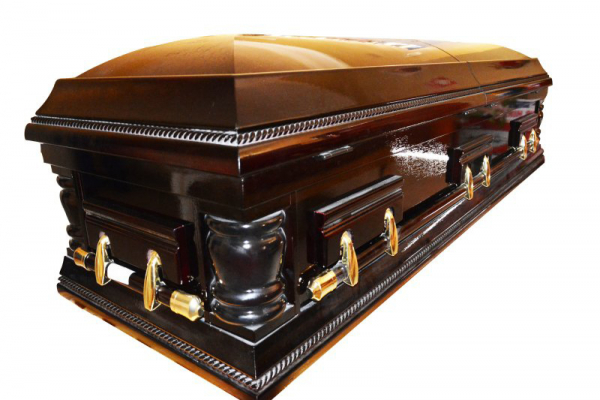
JOHANNESBURG — Thousands of Zimbabweans, fleeing the political and economic crisis in their home country and starting life afresh in South Africa, hardly think about their fate should they die in foreign lands.
BY SHADRECK MARIRIMBA
When death strikes, however, friends and relatives are often left with the headache of scraping together money for the body’s repatriation.
With proper official repatriation costing an arm and a leg, many have resorted to illegal means of ferrying the bodies back home, usually using public transport.
A 37-year-old truck driver, who identified himself only as Ntando, has been carrying bundled dead bodies across the Beitbridge Border Post for burial in Zimbabwe.
“It’s very expensive to repatriate a body to Zimbabwe, so many Zimbabweans approach us to carry their relatives back home in our trucks,” he said.
“I started doing this long back.
“At first, I was afraid to carry a dead body like vegetable bundles, but after I was introduced to it by some friends, it’s now normal.”
- Chamisa under fire over US$120K donation
- Mavhunga puts DeMbare into Chibuku quarterfinals
- Pension funds bet on Cabora Bassa oilfields
- Councils defy govt fire tender directive
Keep Reading
He said sometimes they squeezed the bodies under their seats and even inside the cargo they will be carrying.
This was confirmed by touts, who operate at Powerhouse and Newtown bus termini in Johannesburg, where many Zimbabweans board buses back home.
Many Zimbabweans that die without official travelling documents, having illegally skipped the border into South Africa, can only be transported using public transport in a network involving the relatives, transport operators and, sometimes, officials at customs control.
“Relatives of the deceased approach us through trustworthy connections and we talk to drivers of certain buses (bus names given) and normally bodies are put in buses during the night along N1, when they depart for Zimbabwe,” one of the touts, who helped bundle the bodies into the buses, said.
“It will be a secret known by the driver and conductor only. No passenger must know this, as it will cause panic.”
Asked how much it cost to transport a dead body to Zimbabwe, they said it can be anything from R2 000, a fortune for many immigrants.
Investigations revealed that some of the buses did not undergo thorough searches at the border, as bus crews worked in cahoots with customs officials, with money changing hands, to evade the searches.
A driver, who requested anonymity, said using public transport to carry dead bodies has been going on for many years. “It is how we make money here and it is a paying business.
“Just last week, I carried two bodies. As long as there is money, I will do it.
“The situation at home needs us to make money,” he said.
“Normally, we work with family members of the deceased and arrange for a place to meet along the road.
“This is done during the night.
“We stop at the spot and act like we are doing a routine check on bus tyres and then quickly load the body into a place where it can’t be found easily.”
Further investigations revealed that some relatives drive to Musina with their dead relatives only to use taxi operators to cross with the dead bodies among the luggage.
A Zimbabwean, who stays in Middelburg, Mpumalanga province, Tinashe said transporting bodies in this manner was “inhuman” and “cruel”.
“Using public transport to carry dead bodies, hiding them in the luggage, is not only inhuman, but cruel, too,” he said.
For one to be repatriated back to Zimbabwe a lot of paperwork needs to be done and large sums of money are needed.
A post-mortem report, death certificate, embalmment and cremation certificate, export permit (from concerned country’s authority to repatriate the body), infectious/non-infectious disease certificate (issued by a doctor), Zimbabwean passport or foreign issued passport with a Zimbabwean permanent residence endorsed in the passport and certificate of contents and a declaration of the coffin’s contents done by undertakers are some requirements needed to transport a body to Zimbabwe.
These documents must be sent to the Zimbabwean Foreign Affairs ministry in Harare before the body can be repatriated. Many Zimbabweans consider the process strenuous and too demanding and prefer to bypass official channels.











